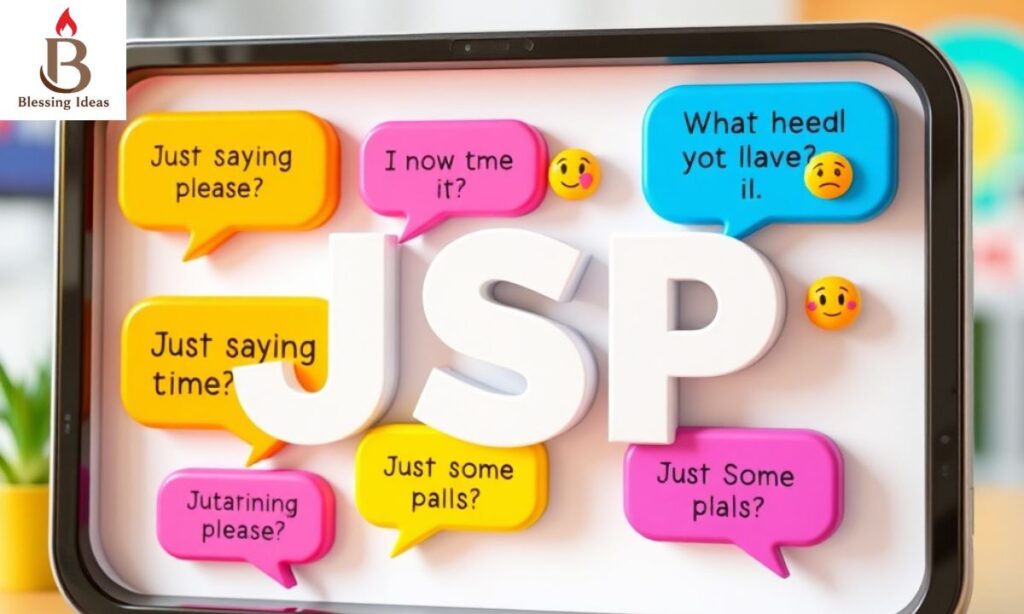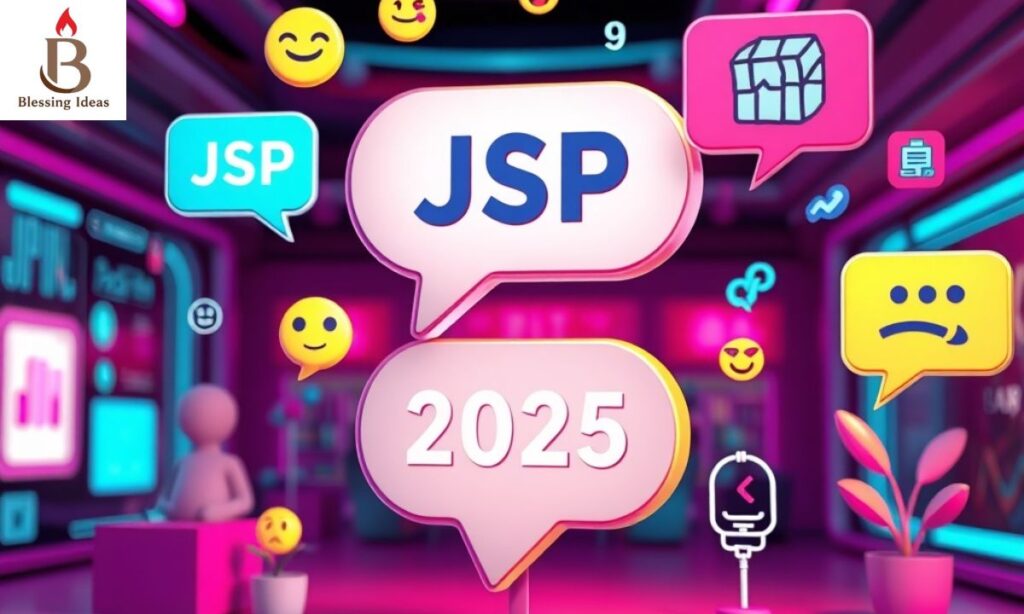In today’s fast-paced digital world, texting abbreviations have become the backbone of modern communication. From instant messaging to social media posts, short forms help us express thoughts quickly and efficiently. One abbreviation that frequently pops up in conversations is “JSP.”
Understanding what “JSP” means and how to use it properly can make your digital communication more effective and appropriate. Whether you’re texting friends, messaging colleagues, or engaging on social platforms, knowing the right context and alternatives is crucial.
What Does “JSP” Mean in Text?
“JSP” is a versatile abbreviation that can mean different things depending on the conversation context. The most common interpretations include:
Just Saying, Please – This is the most popular meaning in casual texting. It’s used when someone wants to share their opinion or make a suggestion without appearing pushy or aggressive.
Just Some People – Used when referring to a general group of individuals in conversation, often when discussing opinions or behaviors.
Java Server Pages – In technical discussions, particularly among programmers and web developers, JSP refers to this specific web development technology.
The key to understanding “JSP” lies in reading the context of your conversation. A message about weekend plans will likely use “JSP” differently than a discussion about coding projects.
Context clues like the conversation topic, the relationship with the person you’re texting, and the overall tone help determine the correct interpretation. Always consider these factors before responding.
Polite Alternatives to “JSP” in Text
When communicating with people you want to maintain respect with – such as acquaintances, teachers, or distant relatives – using polite alternatives shows consideration and good manners.
Here are some courteous replacements for “JSP”:
- “Just my humble opinion”
- “I respectfully suggest”
- “Perhaps you might consider”
- “This is just a gentle suggestion”
- “I hope this comes across well”
- “Please don’t take this the wrong way”
- “I’m sharing this with good intentions”
These alternatives demonstrate thoughtfulness and help maintain positive relationships while still expressing your viewpoint clearly.
Example:
Original: “You should probably leave earlier for the meeting. JSP.”
Polite Alternative: “You should probably leave earlier for the meeting. Just my humble opinion.”
The polite version softens the suggestion and shows respect for the recipient’s decision-making ability.
Professional Alternatives to “JSP” in Text
Workplace communication requires a more formal approach. Whether you’re messaging colleagues, supervisors, or clients, professional language maintains credibility and respect.
Consider these business-appropriate alternatives:
- “For your consideration”
- “I would like to propose”
- “This is a professional recommendation”
- “Based on my analysis”
- “I suggest we consider”
- “This feedback is intended constructively”
- “From a business perspective”
These phrases maintain professionalism while still allowing you to share opinions and suggestions effectively.
Example:
Original: “The presentation needs more data analysis. JSP.”
Professional Alternative: “The presentation needs more data analysis. For your consideration.”
This approach maintains workplace etiquette while delivering useful feedback.
Casual Alternatives to “JSP” in Text

With close friends and family, you can be more relaxed and informal. Casual alternatives let you express yourself naturally while maintaining the original meaning.
Popular casual options include:
- “Just sayin'”
- “No offense, but”
- “Not gonna lie”
- “Just my two cents”
- “IMHO” (In my humble opinion)
- “Just throwing it out there”
- “Don’t hate me, but”
These alternatives fit perfectly in informal conversations and social media interactions.
Example:
Original: “That new restaurant is totally overpriced. JSP.”
Casual Alternative: “That new restaurant is totally overpriced. Just sayin’.”
This keeps the conversational tone light and friendly while sharing your honest opinion.
Choosing the Best Alternative Based on Tone and Context
Selecting the right alternative depends on several important factors that affect how your message will be received.
Consider your relationship with the recipient. Close friends appreciate casual language, while professional contacts expect formal communication. Family members might prefer something in between.
Think about the conversation topic. Serious discussions require more respectful language, while light topics allow for casual expressions.
Evaluate the platform you’re using. Social media posts can be more casual than work emails or text messages to supervisors.
Consider cultural differences. What seems polite in one culture might appear too direct or too indirect in another.
Always err on the side of being more polite rather than less, especially when you’re unsure about the appropriate tone level.
Texting Examples Optimized for Google
Here are real-world examples showing how to use JSP alternatives effectively in different situations:
Friend conversation: “You really need to watch that new series on Netflix. Just throwing it out there!”
Work colleague: “The client meeting might benefit from additional preparation time. For your consideration.”
Family group chat: “Mom’s cooking is definitely better than that fancy restaurant. No offense, but it’s true!”
Social media comment: “This movie deserves more recognition than it got. Just my two cents.”
Professional email: “I believe revising our marketing strategy could improve results. This is a professional recommendation.”
Casual dating conversation: “That coffee shop has the best atmosphere for studying. Not gonna lie.”
Teacher to student: “Your essay would benefit from stronger supporting arguments. I suggest we consider this feedback.”
Group project discussion: “We should probably start earlier next time. Just my humble opinion.”
Business presentation: “This data suggests we need to adjust our approach. Based on my analysis.”
Friend giving advice: “You deserve someone who treats you better. Don’t hate me, but it’s true.”
These examples demonstrate how context shapes the choice of alternative, ensuring your message is received as intended.
Conclusion
Understanding “JSP” and its appropriate alternatives is essential for effective digital communication in 2025. Whether you’re texting casually or communicating professionally, choosing the right expression shows respect for your audience and improves message clarity.
The key is matching your language choice to the relationship, context, and platform you’re using. Polite alternatives work best with acquaintances, professional options suit workplace communication, and casual expressions fit perfectly with friends and family.






